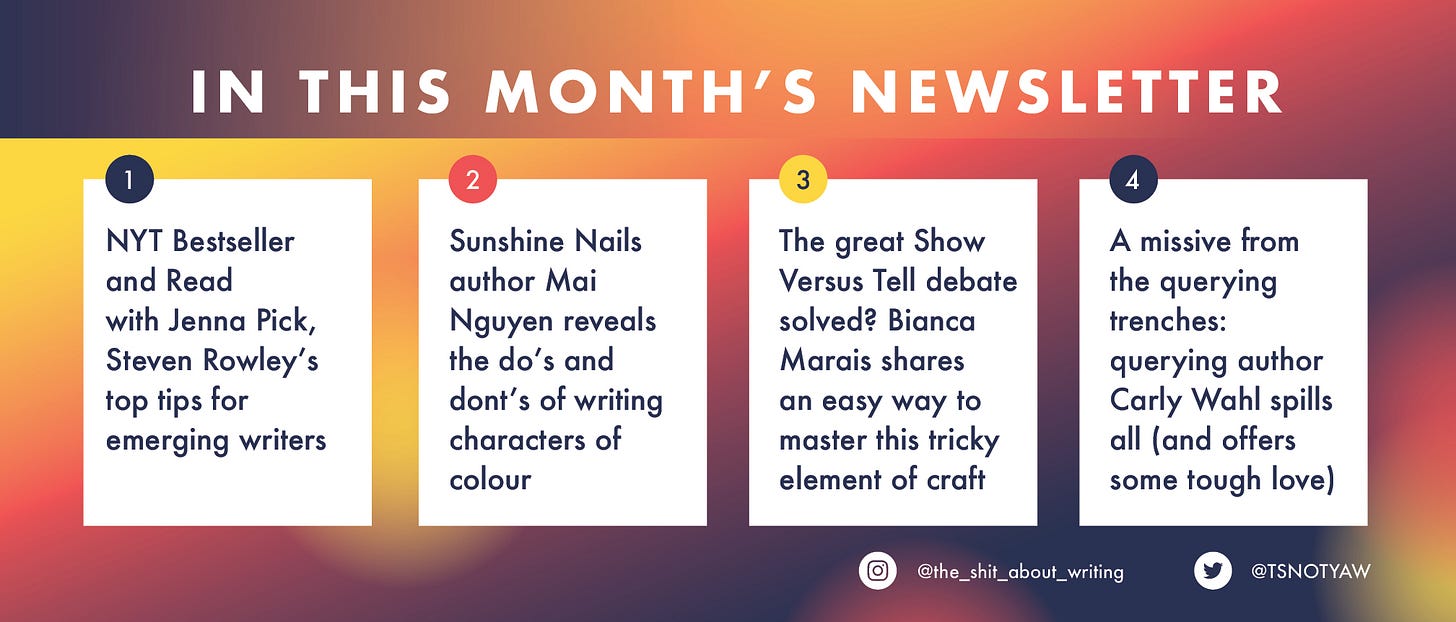✨The Celebrants author Steven Rowley's top writing tips; the do's and dont's of writing characters of colour; a querying author spills all
✨And the great Show Versus Tell debate solved!✨
😊 Hello friend! And welcome to our June issue! 😊
This can be a busy time of year and we hope you are enjoying time with your loved ones. If you’re managing to squeeze in some writing time, that’s fab, but we double-checked with the Ministry of What Actually Counts as Writing and turns out that travelling, trying new things, and even lying by a pool re-…
Keep reading with a 7-day free trial
Subscribe to The Shit No One Tells You About Writing to keep reading this post and get 7 days of free access to the full post archives.




